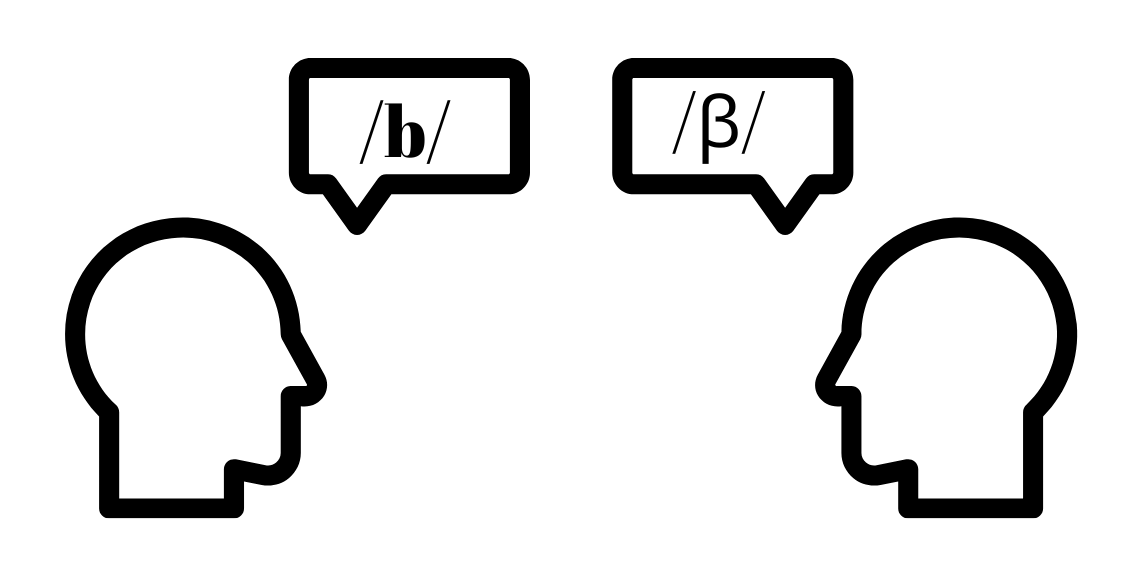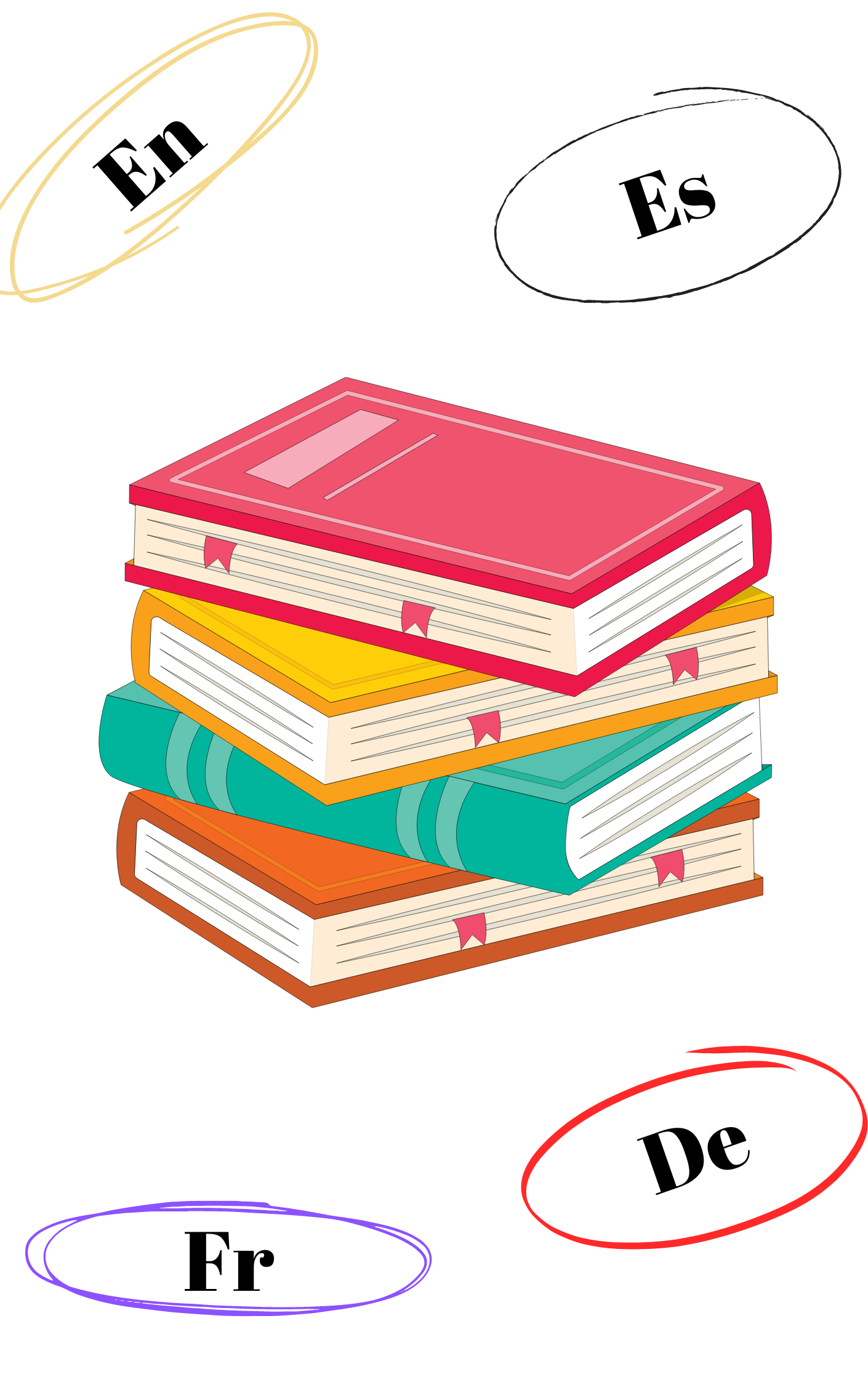My experience with errors in Language Acquisition
irst of all, I apologize and warn you. In this article, I’m going to ramble. We say “hablar pavadas” in Rioplatense Spanish.
I speak four languages with different levels of linguistic competence. Spanish, my native language. English, which I dare say I speak very well because I have been learning it since I was nine years old, and that is what native speakers I have interacted with in person have told me. Additionally, I have no trouble maintaining a normal conversation. German, well, because I have passed a C1 exam and because I use the language frequently. While sometimes my brain has to work like a computer to express what I want to say, I generally manage to do so, even if I (often) have to resort to circumlocutions. And when my conversation partner says in three words what I said in twenty-four… And French. With French, I am actually struggling, and I have to admit that it is winning. The pronunciation is so difficult that I cannot make progress, for example, with vocabulary, even though I speak Spanish, another Romance language. But if I had to travel to France today, I would manage without major problems, at least for the basics—if the basics do not include using the subjonctif.
A few years ago, I took a German course in Dresden, Saxony, Germany. I love traveling, and when I travel, I enjoy mingling with the locals to learn more about their culture. I also like dark beer, so while I was in Dresden one night, I decided to go to a bar to have some dark beer. My German level at that time was very low, at most an A2, and Germans are very direct people who do not let mistakes slide. In other words, if you make a mistake, they will tell you. German has grammatical cases, something I will not explain in this article because it would take me 800 pages. The point is that grammatical cases imply declension, meaning that many words change depending on their function in the sentence. For example, in English, red is always red in every case you need to say red. In German, it is rot, but depending on the case, it can become rote, roter, roten, rotem or rotes. I think I am not forgetting any forms. But it gets worse: some of these forms can be masculine, feminine, singular, or plural, depending on the grammatical case. In other words, rojo, roja, rojos, rojas in Spanish is child’s play.
The thing is, I went to the bar and rehearsed at the entrance how to ask for a recommendation for a good dark beer.
– Könnten Sie mir bitte ein gutes dunkel Bier empfehlen?
– Hast du dunkles gesagt?
That was the response, with an unfriendly expression, because I had not declined the adjective dunkel. Why do I share this anecdote? Because mistakes are part of the process of acquiring a foreign language. And humans do not like making mistakes – it makes us nervous, it embarrasses us. The problem is that mistakes are precisely part of the process, and when learning a language, we cannot wait until we speak it perfectly before we start using it. On the one hand, if we do not use it, we will not progress; on the other hand, it is very likely that we will never achieve native-level proficiency. In fact, due to various factors, if we begin learning a foreign language as adults, it is highly improbable that we will attain the competence of a native speaker. There is a theory that says only 5% of adults who start learning a foreign language will reach this level of linguistic competence. And they call them the pathological 5%. So, basically, what I want to convey with this article is that we should not be afraid of making mistakes, and if we cannot avoid fear, we should make mistakes despite it. And if we are corrected, we should accept it. After all, corrections help us improve, don’t they?
Another strategy—and as I write this, I realize that I am partly venting—is not to focus on mistakes. This only increases nervousness when using the foreign language we are acquiring. And in this case, I will use myself as an example. Earlier, I mentioned that I am struggling with French more than learning it, and I am losing the battle. I learn languages because I enjoy it, and what I like most about French, in particular, is how it sounds. I love how French sounds. But when I speak French, I have a strong Spanish accent, so I hate how I sound when I speak it.
Why do we have a foreign accent when speaking another language? We are most likely to have a foreign accent when we speak the foreign language(s) we’ve acquired. This happens because when acquiring a new language, we assimilate its sounds, intonation, etc., to the closest equivalents in our native language(s). And while many linguists would argue with me and tell me that I’m rambling (hablando pavadas), from my humble point of view, a foreign accent is the most common type of error when speaking another language, and it’s the one that tends to fossilize the most. I’ve read many explanations about what error fossilization is, but the one I like the most is the following: fossilized errors are those that, as they don’t hinder communication, our brain decides not to correct. Because it’s not strictly necessary. And in the particular case of a foreign accent, in most cases, it’s not. It’s not the same to conjugate verbs incorrectly, confuse vocabulary, or forget reflexive pronouns than it is to pronounce the sounds of a language in a way that’s similar to how native speakers pronounce them. With all this said, let’s return to my French.
As I was saying, when I speak French, I have a strong Spanish accent. French pronunciation is very difficult; for example, it has nasal vowels that don’t exist in my language, it’s full of exceptions, and a long etcetera. So, it happens to me that when I speak in French and hear my own foreign accent, I focus so much on my pronunciation mistakes that, on one hand, I often can’t find the words to say what I want to say because I’m completely focused on listening to myself, and on the other hand, I become so aware that I’m not pronouncing as I’d like that I start pronouncing even worse. So, from my point of view, and at this moment I’m advising myself, let’s stop being afraid of making mistakes and focus on what we do well, instead of on what we do wrong. And let’s make mistakes: making mistakes and being corrected is also a way to move forward.






Leave a Reply